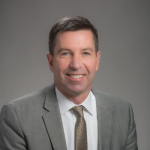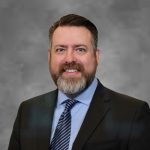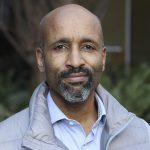Watch on Vimeo
Session 3: Planning/implementing new or additional device-related digital health projects/programs
September 19, 2023
About the Speakers
 Cindy Jacobs, RN, JD, brings over 30 years of combined legal and health care experience to her role in the ITHS Technology Development Center. As a registered nurse before attending law school, she focused on the clinical specialty of neonatology, including 3 years in an advanced practice role. As an attorney, she has represented and advised health care clients regarding a variety of issues, including telemedicine and other health care technologies, FDA law, HIPAA, reimbursement and related compliance, health care contracting, risk management/professional liability, scope of practice/licensing, informed consent, and product liability. Cindy’s UW roles have included Assistant Attorney General in the UW Attorney General’s Office, Director of Clinical Risk Management for UW Medical Center, and Director of Clinical Projects for the UW School of Medicine. She also continues to teach FDA Law at UW School of Law, which she has done since 2010, along with periodic law student seminars on telemedicine and healthcare clinical compliance. She is a member of the ITHS Drug and Device Advisory Committee.
Cindy Jacobs, RN, JD, brings over 30 years of combined legal and health care experience to her role in the ITHS Technology Development Center. As a registered nurse before attending law school, she focused on the clinical specialty of neonatology, including 3 years in an advanced practice role. As an attorney, she has represented and advised health care clients regarding a variety of issues, including telemedicine and other health care technologies, FDA law, HIPAA, reimbursement and related compliance, health care contracting, risk management/professional liability, scope of practice/licensing, informed consent, and product liability. Cindy’s UW roles have included Assistant Attorney General in the UW Attorney General’s Office, Director of Clinical Risk Management for UW Medical Center, and Director of Clinical Projects for the UW School of Medicine. She also continues to teach FDA Law at UW School of Law, which she has done since 2010, along with periodic law student seminars on telemedicine and healthcare clinical compliance. She is a member of the ITHS Drug and Device Advisory Committee.
 John Scott, MD, MSc, FIDSA, is a Professor of Medicine (Division of Allergy and Infectious Diseases) and Chief Digital Health Officer at UW Medicine. He graduated from Stanford University with a degree in Human Biology, attended Georgetown University School of Medicine cum laude, completed a residency in Internal Medicine at Stanford University Hospitals, and then obtained sub-specialty training in Infectious Diseases at the University of Washington. He joined the University of Washington faculty in 2005.
John Scott, MD, MSc, FIDSA, is a Professor of Medicine (Division of Allergy and Infectious Diseases) and Chief Digital Health Officer at UW Medicine. He graduated from Stanford University with a degree in Human Biology, attended Georgetown University School of Medicine cum laude, completed a residency in Internal Medicine at Stanford University Hospitals, and then obtained sub-specialty training in Infectious Diseases at the University of Washington. He joined the University of Washington faculty in 2005.
In 2009, he launched Project ECHO (Extension for Community Health Outcomes) in Washington State, the first place to replicate the ECHO model outside of New Mexico. This innovative telehealth program helps clinicians serving in rural and underserved areas with the evaluation and treatment of common, complex, chronic diseases. In 2015, he won the Warren Reid Award for excellence in health care for the state of Washington, in recognition of his telehealth work. He chairs the Washington State Telehealth Collaborative and serves on the Telehealth committee for the Infectious Disease Society of America. The Washington State Medical Association recognized him with the Grassroots Advocate Award in 2020 for his work in advocating for policy changes for telemedicine at the state and federal level.
 Joseph “Augie” D’Agostino, MEd, CISO, is currently the Chief Information Security Officer at University of Washington Medicine. The UW Medicine Security Program supports the hospital system, school of medicine (SOM), medical research, and Airlift Northwest. His career in information technology spans over twenty-five years. He has filled a variety of leadership roles in cyber security, governance, risk, and compliance over the last decade and has focused solely on healthcare for the last seven years. His most recent training was at Carnegie Mellon-Heinz College where he received a Chief Information Security Officer (CISO) Executive Certificate. Augie believes at the foundation of every successful security program exists a security aware culture that supports a “brilliant at the basics” approach to Information technology and security. He has a strong passion for mentoring, training, and developing others, providing opportunities to team members, and enabling others to see the “big picture” while working towards positive outcomes. He feels a powerful sense of purpose in the healthcare industry and enjoys working for an organization who has a mission “to improve the health of the public.”
Joseph “Augie” D’Agostino, MEd, CISO, is currently the Chief Information Security Officer at University of Washington Medicine. The UW Medicine Security Program supports the hospital system, school of medicine (SOM), medical research, and Airlift Northwest. His career in information technology spans over twenty-five years. He has filled a variety of leadership roles in cyber security, governance, risk, and compliance over the last decade and has focused solely on healthcare for the last seven years. His most recent training was at Carnegie Mellon-Heinz College where he received a Chief Information Security Officer (CISO) Executive Certificate. Augie believes at the foundation of every successful security program exists a security aware culture that supports a “brilliant at the basics” approach to Information technology and security. He has a strong passion for mentoring, training, and developing others, providing opportunities to team members, and enabling others to see the “big picture” while working towards positive outcomes. He feels a powerful sense of purpose in the healthcare industry and enjoys working for an organization who has a mission “to improve the health of the public.”
 Lenny Sanchez, JD, CHC, is the Director of Patient Privacy at UW Medicine Compliance. He has worked in the health care field for nearly fifteen years and is a proud Triple Dawg. Prior to attending the UW School of Law, Lenny served in roles at a private Institutional Review Board and the UW Institute of Translational Health Sciences. After graduation, Lenny investigated potential violations of the HIPAA Privacy, Security, and Breach Notification Rules as well as federal civil rights laws at the U.S. Department of Health and Human Services Office for Civil Rights. He then returned to the UW in 2014 as a Patient Information Privacy team member and has been directing the program since 2018. He is passionate about serving the academic medical center community and loves the dynamic, complex nature of the work.
Lenny Sanchez, JD, CHC, is the Director of Patient Privacy at UW Medicine Compliance. He has worked in the health care field for nearly fifteen years and is a proud Triple Dawg. Prior to attending the UW School of Law, Lenny served in roles at a private Institutional Review Board and the UW Institute of Translational Health Sciences. After graduation, Lenny investigated potential violations of the HIPAA Privacy, Security, and Breach Notification Rules as well as federal civil rights laws at the U.S. Department of Health and Human Services Office for Civil Rights. He then returned to the UW in 2014 as a Patient Information Privacy team member and has been directing the program since 2018. He is passionate about serving the academic medical center community and loves the dynamic, complex nature of the work.
 Terri Butler, PhD, works with faculty and students at the University of Washington and collaborating Pacific Northwest research institutions advising on commercialization pathways for biomedical technologies. She is the primary contact for the ITHS Drug and Device Advisory Committee and manages the WE-REACH Biomedical Entrepreneurship Training.
Terri Butler, PhD, works with faculty and students at the University of Washington and collaborating Pacific Northwest research institutions advising on commercialization pathways for biomedical technologies. She is the primary contact for the ITHS Drug and Device Advisory Committee and manages the WE-REACH Biomedical Entrepreneurship Training.
Terri draws on her industry experience to assist teams in vetting their ideas through a rigorous process of customer discovery, competitor analysis and market validation as well as laying out strategies for technical development. Prior to coming to the University Terri worked in key industry roles along the commercialization pathway, including invention, product development, FDA regulatory management, manufacturing scale-up, and sales and marketing. She has worked at large and small companies, including 3M, Molecular Genetics, Bioenergy Life Sciences, and multiple university spin-out companies. Products she has commercialized include monoclonal antibodies, pharmaceutical release liner, nutritional formulations, and non-medical technologies in the high-tech materials field. She is an inventor on 14 patents in coating processes, chemical formulations, and nutritional applications.
 Teddy Johnson, PE, MBA is the Director of Technology Development at the Institute of Translational Health Sciences, a clinical associate professor in the UW School of Pharmacy, and a licensed professional engineer in the state of California. He joined the healthcare community over 25 years ago and has served start-up and Fortune 500 companies in research, design, clinical, marketing, and sales leadership roles; developing imaging, interventional, surgical, and digital health products. Over the years, Teddy has celebrated 2 IPO’s and 4 acquisitions, while earning numerous patents and commercializing dozens of new products worldwide. To foster the next generation of innovators, Teddy teaches in the Foster School Creative Destruction Lab (CDL) startup accelerator and the Biomedical Regulatory Affairs Master of Science (BRAMS) programs at the University of Washington, and he advises startup CEOs in Seattle, Vancouver, and Silicon Valley.
Teddy Johnson, PE, MBA is the Director of Technology Development at the Institute of Translational Health Sciences, a clinical associate professor in the UW School of Pharmacy, and a licensed professional engineer in the state of California. He joined the healthcare community over 25 years ago and has served start-up and Fortune 500 companies in research, design, clinical, marketing, and sales leadership roles; developing imaging, interventional, surgical, and digital health products. Over the years, Teddy has celebrated 2 IPO’s and 4 acquisitions, while earning numerous patents and commercializing dozens of new products worldwide. To foster the next generation of innovators, Teddy teaches in the Foster School Creative Destruction Lab (CDL) startup accelerator and the Biomedical Regulatory Affairs Master of Science (BRAMS) programs at the University of Washington, and he advises startup CEOs in Seattle, Vancouver, and Silicon Valley.





 Teddy Johnson, PE, MBA, joined the healthcare community over 25 years ago, after graduating from Stanford University’s mechanical engineering program. Since then, he has served start-up and Fortune 500 companies in research, design, clinical, marketing, and sales leadership roles; developing imaging, interventional, surgical, and pharmaceutical products. Along the way, Teddy earned his MBA from the University of Michigan’s Ross Business School. With hard work, good judgment, and a little luck, Teddy has celebrated 2 IPO’s and 4 acquisitions, while earning numerous patents and commercializing dozens of new products worldwide. As a way of fostering innovation, Teddy teaches in the STEM and Biomedical Regulatory Affairs Master of Science (BRAMS) Programs at the University of Washington, serves as Director of Technology Development for the Institute of Translational Health Sciences and WE-REACH, and mentors startup CEOs in Seattle and the Silicon Valley.
Teddy Johnson, PE, MBA, joined the healthcare community over 25 years ago, after graduating from Stanford University’s mechanical engineering program. Since then, he has served start-up and Fortune 500 companies in research, design, clinical, marketing, and sales leadership roles; developing imaging, interventional, surgical, and pharmaceutical products. Along the way, Teddy earned his MBA from the University of Michigan’s Ross Business School. With hard work, good judgment, and a little luck, Teddy has celebrated 2 IPO’s and 4 acquisitions, while earning numerous patents and commercializing dozens of new products worldwide. As a way of fostering innovation, Teddy teaches in the STEM and Biomedical Regulatory Affairs Master of Science (BRAMS) Programs at the University of Washington, serves as Director of Technology Development for the Institute of Translational Health Sciences and WE-REACH, and mentors startup CEOs in Seattle and the Silicon Valley. John Scott, MD, MSc, FIDSA, is a Professor of Medicine (Division of Allergy and Infectious Diseases) and Chief Digital Health Officer at UW Medicine. He graduated from Stanford University with a degree in Human Biology, attended Georgetown University School of Medicine cum laude, completed a residency in Internal Medicine at Stanford University Hospitals, and then obtained sub-specialty training in Infectious Diseases at the University of Washington. He joined the University of Washington faculty in 2005.
John Scott, MD, MSc, FIDSA, is a Professor of Medicine (Division of Allergy and Infectious Diseases) and Chief Digital Health Officer at UW Medicine. He graduated from Stanford University with a degree in Human Biology, attended Georgetown University School of Medicine cum laude, completed a residency in Internal Medicine at Stanford University Hospitals, and then obtained sub-specialty training in Infectious Diseases at the University of Washington. He joined the University of Washington faculty in 2005.
 Cindy Jacobs, RN, JD, brings over 30 years of combined legal and health care experience to her role as a regulatory consultant with the ITHS Technology Development Center. As a registered nurse before attending law school, she focused on the clinical specialty of neonatology, including 3 years in an advanced practice role. As an attorney, she has represented and advised health care clients regarding a variety of issues, including telemedicine and other health care technologies, FDA law, HIPAA, reimbursement and related compliance, health care contracting, risk management/professional liability, scope of practice/licensing, informed consent, and product liability. Cindy’s UW roles have included Assistant Attorney General in the UW Attorney General’s Office, Director of Clinical Risk Management for UW Medical Center, and Director of Clinical Projects for the UW School of Medicine. She also continues to teach FDA Law at UW School of Law, which she has done since 2010, along with periodic law student seminars on telemedicine and healthcare clinical compliance. She is a member of the ITHS Drug and Device Advisory Committee.
Cindy Jacobs, RN, JD, brings over 30 years of combined legal and health care experience to her role as a regulatory consultant with the ITHS Technology Development Center. As a registered nurse before attending law school, she focused on the clinical specialty of neonatology, including 3 years in an advanced practice role. As an attorney, she has represented and advised health care clients regarding a variety of issues, including telemedicine and other health care technologies, FDA law, HIPAA, reimbursement and related compliance, health care contracting, risk management/professional liability, scope of practice/licensing, informed consent, and product liability. Cindy’s UW roles have included Assistant Attorney General in the UW Attorney General’s Office, Director of Clinical Risk Management for UW Medical Center, and Director of Clinical Projects for the UW School of Medicine. She also continues to teach FDA Law at UW School of Law, which she has done since 2010, along with periodic law student seminars on telemedicine and healthcare clinical compliance. She is a member of the ITHS Drug and Device Advisory Committee. Joseph “Augie” D’Agostino is currently the Chief Information Security Officer at University of Washington Medicine. The UW Medicine Security Program supports the hospital delivery system, School of Medicine (SOM), medical research, and Airlift Northwest. His career in information technology spans over twenty-five years. He has gained experience in a variety of leadership roles in cyber security, governance, risk, and compliance over the last two decades and has focused solely on healthcare for nearly a decade. His most recent formal training was at Carnegie Mellon-Heinz College where he received a Chief Information Security Officer (CISO) Executive Certificate, the FBI (Seattle Office) C-Suite Academy, and the FBI CISO Academy for a week of training in Quantico, Virginia. Augie believes at the foundation of every successful security program exists a security aware culture that embraces a “brilliant at the basics” approach to information technology. In healthcare especially, you need everyone to be a member of your security team to be successful. He has a passion for mentoring, training, developing, and enabling others to see the “bigger picture” while working towards positive outcomes. He feels both a personal and professional sense of purpose working in the healthcare industry and appreciates being part of an organization that has a mission “to improve the health of the public.”
Joseph “Augie” D’Agostino is currently the Chief Information Security Officer at University of Washington Medicine. The UW Medicine Security Program supports the hospital delivery system, School of Medicine (SOM), medical research, and Airlift Northwest. His career in information technology spans over twenty-five years. He has gained experience in a variety of leadership roles in cyber security, governance, risk, and compliance over the last two decades and has focused solely on healthcare for nearly a decade. His most recent formal training was at Carnegie Mellon-Heinz College where he received a Chief Information Security Officer (CISO) Executive Certificate, the FBI (Seattle Office) C-Suite Academy, and the FBI CISO Academy for a week of training in Quantico, Virginia. Augie believes at the foundation of every successful security program exists a security aware culture that embraces a “brilliant at the basics” approach to information technology. In healthcare especially, you need everyone to be a member of your security team to be successful. He has a passion for mentoring, training, developing, and enabling others to see the “bigger picture” while working towards positive outcomes. He feels both a personal and professional sense of purpose working in the healthcare industry and appreciates being part of an organization that has a mission “to improve the health of the public.”



